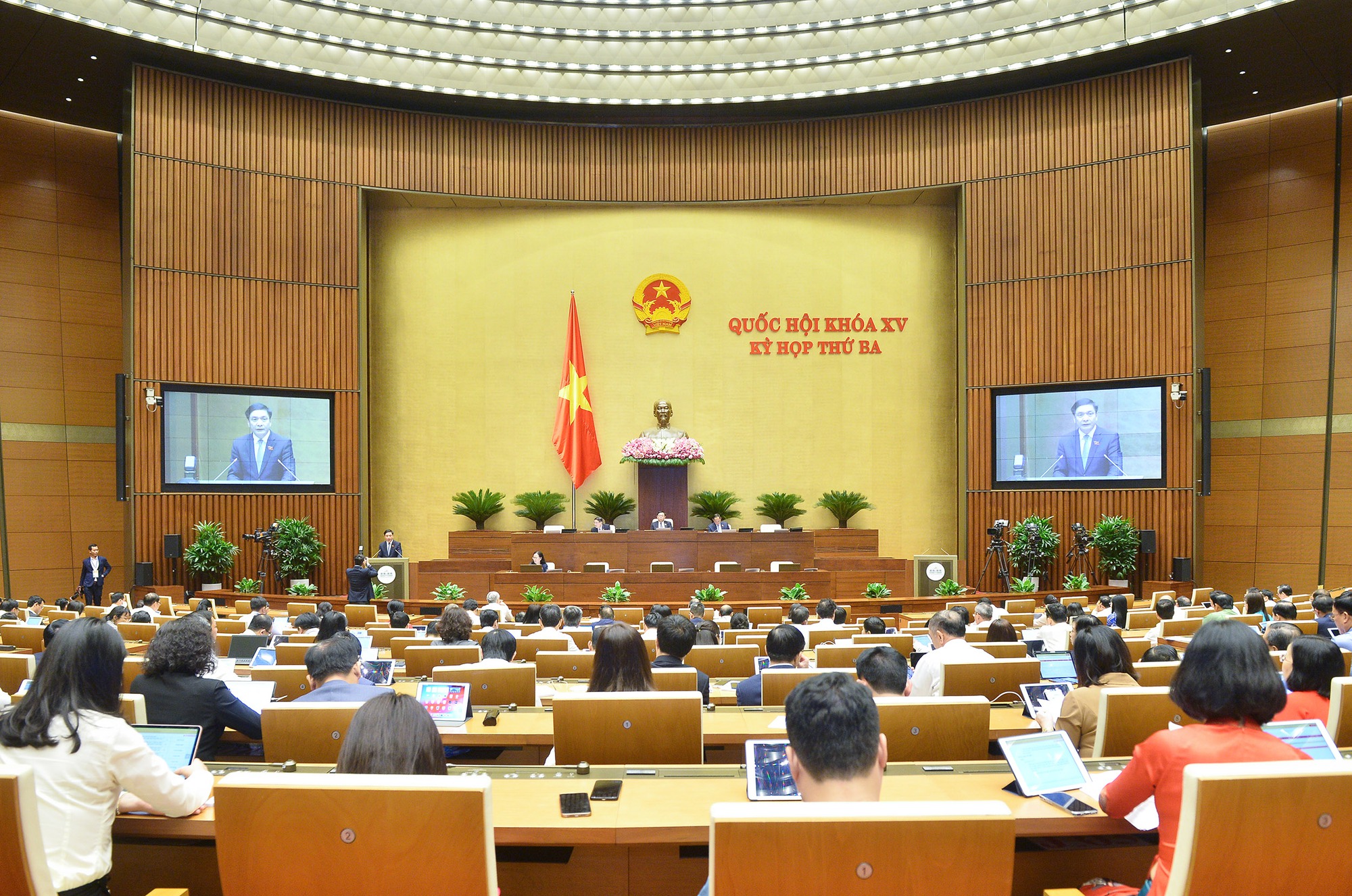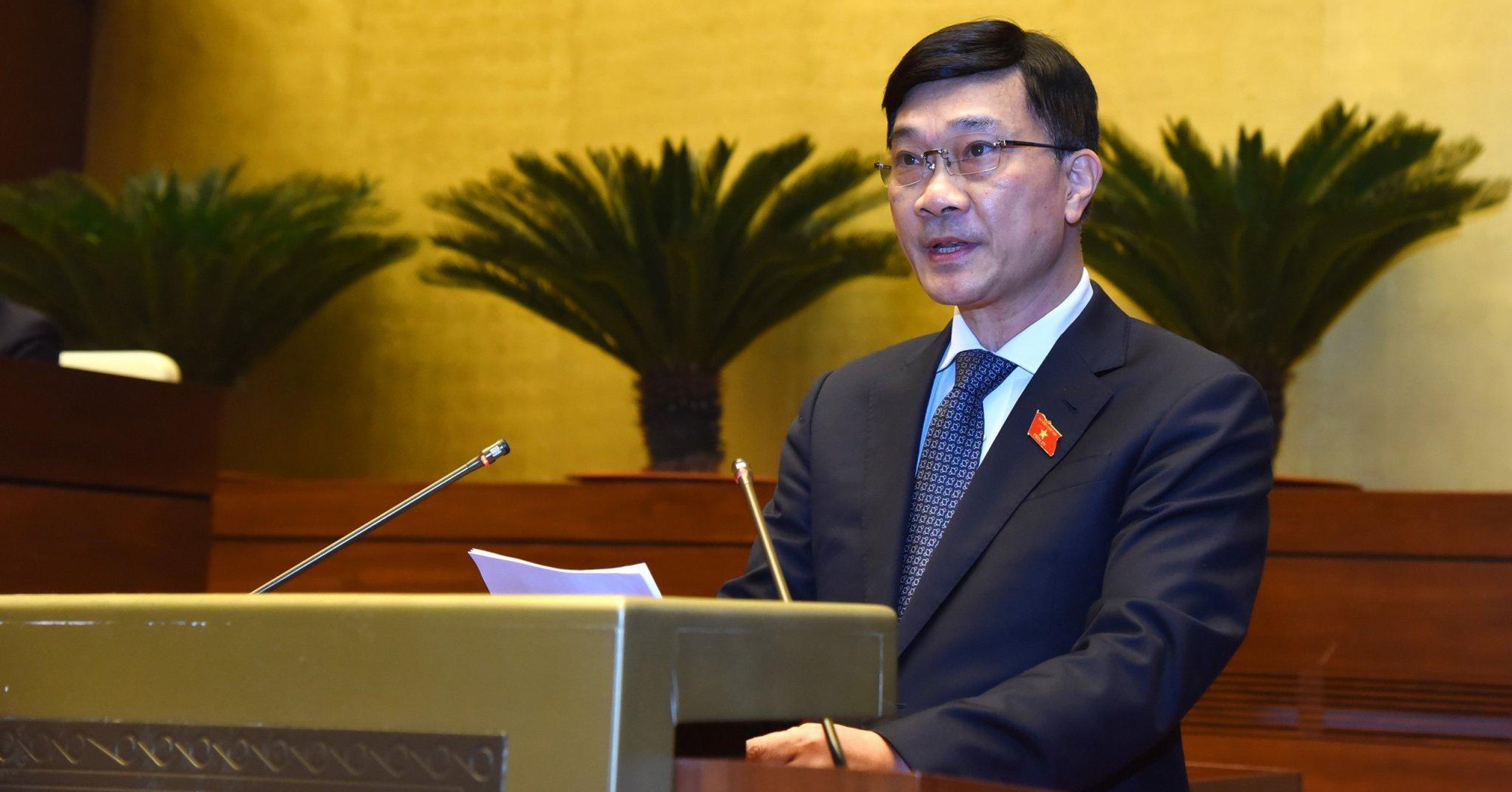Governor Nguyen Thi Hong revealed a series of difficulties and banks “suffering” because of taxes and fees
Accumulated from August 15, 2017 to December 31, 2021, the whole system of credit institutions has handled VND 380.2 trillion of bad debts according to Resolution 42, equaling 47.9% of bad debts according to Resolution No. 42 as of August 15, 2017 and new bad debts under Resolution 42 arise during the effective period of Resolution 42.
On average, bad debt has been handled at about VND 5.67 trillion/month, higher than the average of VND 3.25 trillion/month in the period before Resolution 42 took effect (from 2012 to 2017). .
Governor Nguyen Thi Hong revealed a series of difficulties, the bank “suffers” because of taxes and fees
Governor Nguyen Thi Hong said that, after nearly 5 years of being put into practice, the provisions of Resolution No. 42/2017/QH14 have created a necessary legal corridor for the handling of bad debts of organizations. credit institutions, foreign bank branches, asset management one-member limited liability companies of Vietnamese credit institutions (hereinafter referred to as VAMC).
The implementation of Resolution No. 42/2017/QH14 has brought about positive changes in bad debt settlement, significantly contributing to the results of restructuring the system of credit institutions associated with bad debt settlement in the period. period 2016-2020.

Governor Nguyen Thi Hong. (Photo: QH)
However, Governor Nguyen Thi Hong also pointed out many difficulties and obstacles stemming from the work of implementation, coordination in implementation, and guidance from ministries, branches and localities.
Specifically, about valuation standards for bad debts: Governor Nguyen Thi Hong stated: The methods guided in the Vietnamese valuation standard system are generally applied to appraise the prices of all types of assets that do not yet exist. specific regulations on valuation of debts.
Therefore, when valuing bad debts, valuation enterprises apply different prices, making it difficult for the parties to choose a reference price as the basis for determining the starting price in the purchase transaction. debt sale.
Regarding the exercise of the right to seize collateral (security assets), when customers do not cooperate in handing over collateral assets, oppose when conducting seizure, but the coordination of functional agencies in some cases is not timely (such as: verifying customer information, assisting in the seizure of collateral)… resulting in often unsuccessful seizure.
Courts and civil judgment enforcement agencies do not yet have a data system that allows credit institutions to extract and look up information about assets related to the case being handled for the credit institutions and VAMC to refer to and determine collateral assets. eligible for seizure or not.
At the same time, the proceedings-conducting agencies at many places and levels have different understandings of disputed assets, assets are subject to temporary emergency measures, causing difficulties for credit institutions and VAMC when applying using regulations on asset seizure under Resolution No. 42.
The fact is that there are no specific instructions to handle cases where the seized assets have other assets lying on or within that the securing party or a third party does not voluntarily move, leading to the credit institutions encountering problems. many difficulties and costs incurred in handling these assets.
Regarding the application of simplified procedures in handling disputes related to the obligation to hand over collateral or the right to handle collateral.
According to Governor Nguyen Thi Hong, in fact, completing the procedures at the request of the Court to apply the shortened procedure faced many difficulties because when bad debts occurred, most customers evaded, did not agree with each other. cooperate with credit institutions to coordinate handling, so it is very difficult to do…
In addition, according to regulations, during the preparation stage for the trial of the case according to summary procedures, if new circumstances appear and the involved parties do not agree, making the case no longer eligible for settlement according to the procedures. If the procedure is shortened, the Court must issue a decision to transfer the case to normal procedure.
Thus, in case the client does not cooperate or oppose, it is very easy to lead to the case of deliberately creating new circumstances that make the case no longer meet the conditions to bring the case back to normal procedures. Therefore, up to now, no case has been resolved by the Court according to summary procedures.
Regarding the order of priority for payment when handling collateral, in the process of implementation, although there have been instructions to handle difficulties and problems related to the priority order of payment of personal income tax and civil court fees. when dealing with collateral in Resolution 42, however, recently, credit institutions have continuously reflected on the fact that in reality, tax authorities in many localities still require the recipient to secure/ the transferee must pay income tax on behalf of the guarantor in order to carry out the procedures related to the grant of the certificate and transfer the name to the transferee; Judgment enforcement agencies, after carrying out the procedures for handling collateral assets, still deduct legal fees and personal income tax for successful auctioned collateral assets before transferring money to credit institutions, even Even many collateral assets, after being processed, are still not enough to repay the credit institutions; thereby reducing the efficiency of bad debt settlement.
Meanwhile, in practice in other countries, the rights of the recipient of collateral always take precedence over other rights – according to Governor Nguyen Thi Hong.
Finally, regarding the return of collateral as evidence in criminal cases, there is currently no legal document explaining specifically about “affecting the handling of the case and judgment enforcement”.
Therefore, whether or not to return exhibits in a criminal case as collateral for bad debts or not, at what time will depend heavily on the opinion of the proceeding agency, leading to credit institutions being very slow to receive payment. acquire assets to handle and recover bad debts.

The Government submitted to the National Assembly to extend the pilot of bad debt settlement. (Photo: QH)
Submitting to the National Assembly to prolong the pilot of bad debt settlement
Regarding the prolongation of the pilot of bad debt settlement, Governor Nguyen Thi Hong said that Resolution 42/2017/QH14 only lasts 5 years and will expire after August 15, 2022. When the enforcement expires, the entire mechanism on bad debt handling under Resolution No. 42/2017/QH14 that is being implemented will end, and the bad debt settlement of credit institutions will comply with applicable laws. related policies, some policies are not prioritized in the Resolution No. 42/2017/QH14, the Governor presented.
According to the Governor, the lack of incentive mechanisms and policies to support credit institutions and VAMC in handling bad debts and handling collaterals will also prolong the bad debt settlement process. Bad debts that are being handled under Resolution No. 42/2017/NQ14 will be transferred to be handled in accordance with relevant laws, which will cause difficulties for credit institutions to continue handling such bad debts, easily leading to the arising of disputes between credit institutions and customers.
In addition, difficulties, problems, inadequacies, and legal conflicts between legal documents of the banking industry and other legal documents (especially related to the handling of collateral assets). of bad debts) if the pilot is not continued according to Resolution No. 42/2017/QH14, it will greatly affect the bad debt settlement process of the system of credit institutions, especially affecting the process of handling credit institutions. bad.
Therefore, it is necessary to continue maintaining effective policies that Resolution No. 42/2017/QH14 brings in order to speed up the resolution of bad debts and avoid disputes arising in practice.
From the above necessity, the Government proposed the National Assembly to approve the extension of the application period for all provisions of Resolution No. 42/2017/QH14 to December 31, 2023; include this content in the joint resolution of the 3rd session, the 15th National Assembly.
at Blogtuan.info – Source: danviet.vn – Read the original article here



